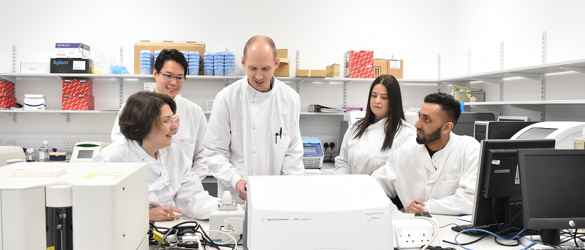
Seedcorn grants
Seedcorn grants up to £25,000 are available for projects with a maximum duration of one year, at a UK institution.
We will consider applications for clinical or laboratory-based research projects which can positively impact people with macular disease. This may include research into causes and prevention, early detection, treatments or improving quality of life. Researchers are welcome to submit grant applications to carry out research on any type of macular disease.
Grants may be used for salaries, consumables, equipment, travel, computing costs and open access publication. They are not intended to be used as ‘top-up’ funds to meet a shortfall in funding from another body. Please note that as a charity we only support the directly incurred costs of research. The Macular Society’s usual terms and conditions will apply.
The Research Committee considers applications against the following criteria:
- scientific quality
- innovation
- value for money
- relevance to the Macular Society's Research Strategy
- potential for obtaining further funding resulting from the proposed research
We strongly advise researchers to read the Macular Society's Research Strategy 2020-2030 (see below) and the guidance provided in Information about our grants when preparing their grant applications.
You can read more about projects we are currently funding.
Application process
Applications will be reviewed by the research committee and there will be no external peer reviews.
Funding decisions will be made in November, allowing projects to begin early the following year.
Any queries should be sent to research@macularsociety.org
Timeline
Preliminary applications open: July – September
Research committee and lay panel review: September – October
Outcome notifications: November (dependent on date of Trustee meeting)
Downloads
Information about our grants
You can find more information about the research we fund, the application process, and guidance on how to apply. Here you can also find the Research Strategy.
Explore our research
Beating macular disease through funding medical research and improving the lives of those living with macular disease.
Get the latest research news from the Macular Society
To hear about life-changing research and treatments, subscribe to our monthly enewsletter today. Together we can Beat Macular Disease.
Sign up to our free email newsletter





